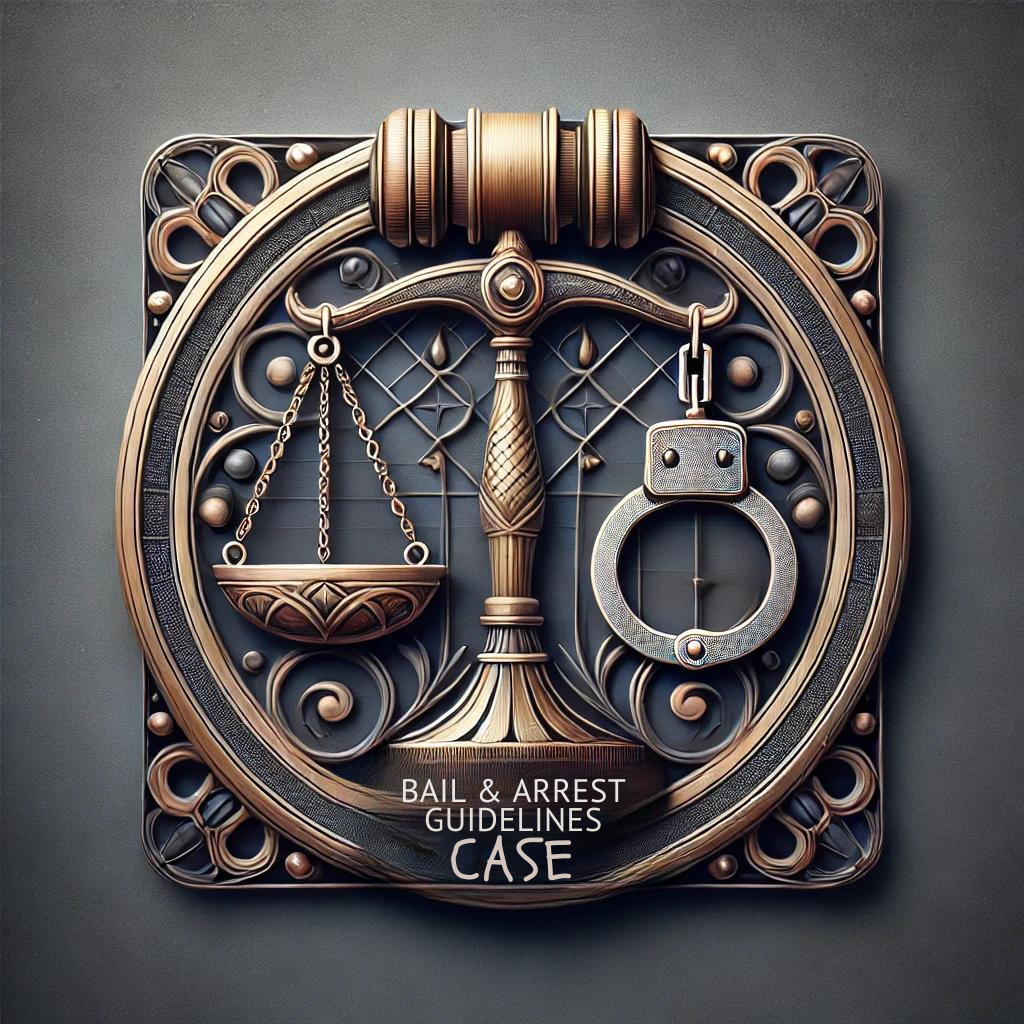The essence of the judiciary’s role in balancing the scales of justice often comes under scrutiny, particularly in the context of bail and arrest guidelines. At the heart of this editorial is a pivotal case that delves into the legality of arrests during investigations and the intricate interpretations of bail under criminal law. This case, scrutinized by the judiciary, brings to light the complexities and often misinterpreted provisions surrounding the arrest of individuals during the inquiry phase, post-charge sheet filing, and the criteria for granting bail.

Facts
Inquiry and Charge Sheet
The Central Bureau of Investigation (CBI) initiated an inquiry against the petitioner, leading to the filing of a chargesheet. Remarkably, no arrest was made during the inquiry phase or after the chargesheet was submitted to the court. Thus indicating a cautious approach by the investigating agency.
Court Summons and Anticipatory Bail
Following the submission of the charge sheet, the court issued a summons to the petitioner. In response, the petitioner sought anticipatory bail, fearing arrest upon appearance. The court, however, denied the bail application and issued a non-bailable warrant due to the petitioner’s failure to appear. It showcases the complexities surrounding anticipatory bail proceedings.
Non-Bailable Warrant and Petitioner’s Fear
The issuance of a non-bailable warrant against the petitioner underscored his apprehensions about being arrested upon court appearance. This fear reflects a broader concern about the practices of law enforcement agencies, particularly in the state of UP, where there’s a perceived trend of arresting individuals post-chargesheet filing.
Issues Involved
The crux of the matter in this legal tangle revolves around deciphering the conditions under which an arrest can be deemed legitimate during various investigation and prosecution stages, particularly focusing on the phase post-charge sheet filing. At the heart of this dispute lies a broader question: Is the arrest of an individual, without immediate precedence of a court appearance or during the inquiry phase, in alignment with the principles of liberty and justice as enshrined in the Indian Constitution? This issue is not just a procedural technicality but strikes at the very foundation of freedom, the presumption of innocence until proven guilty, and the right to a fair trial.
The resolution of this case could potentially recalibrate the balance between the state’s duty to maintain law and order and the individual’s right to freedom from arbitrary detention, making it a landmark case with far-reaching implications. Engaging with this case, the judiciary aspirants are invited to critically analyze the jurisprudence surrounding arrests, the interpretation of bail provisions, and their harmonization with constitutional guarantees. Thereby enriching their understanding and appreciation of the delicate balance of powers in a democratic society.
Observations
Misinterpretation of Criminal Law Provisions
The court observed that authorities often misinterpret criminal law provisions regarding arrests, leading to unwarranted detentions. This misinterpretation not only undermines the legal process but also infringes upon individual rights.

Detention and Right of Liberty
The unnecessary detention of individuals, as noted by the court, directly impacts the Right to Liberty. Such practices challenge the constitutional guarantees provided to every citizen, necessitating a reevaluation of detention protocols.
Presumption of Innocence
The principle of Presumption of Innocence is fundamental, emphasizing that an individual should not be arrested without substantial reason. The court’s insistence on this principle underlines the expectation of restraint and judiciousness in making arrest decisions.
Application of the Principle of Natural Justice
The court highlighted the importance of applying the Principle of Natural Justice in arrest decisions. This approach is crucial for protecting individuals from arbitrary arrests. Thereby ensuring that the fundamental right to liberty is not unduly compromised.
Interpretation of Bail Terms and Provisions
A broader interpretation of bail terms and related legal provisions was adopted by the court. This expansive view aims to ensure fairness in the bail process, reflecting a more nuanced understanding of legal rights and procedural safeguards.
Categorization of Offenses and Arrest Guidelines
The court’s categorization of offenses where arrests are deemed unnecessary, along with the issuance of arrest guidelines. Thus, this marks a significant step towards rationalizing the process and ensuring that arrests are not made arbitrarily.
Duties of Governments in Bail Matters
The court outlined the duties of Central and State Governments in bail-related matters. It emphasizes the need for compliance with guidelines to prevent misuse of power and ensure justice.
Consideration of Guidelines in Arrests and Judgements
The necessity for courts and authorities to consider these guidelines while making arrest decisions and passing judgments was underscored. This approach is essential for maintaining the integrity of the judicial process and upholding the rights of individuals.
Conclusion
In the intricate dance of justice, the recent verdict serves as a pivotal movement toward reinforcing the principle that “Jail Is An Exception And Bail Is A Right.” This landmark judgment sheds light on the misuse of the power of arrest. It also reiterates the sanctity of personal liberty enshrined in the Constitution of India. For judiciary aspirants, this case underlines the importance of a nuanced understanding of criminal law. It emphasizes the delicate balance between the rights of the individual and the needs of society. It serves as a reminder that the law is not just a tool for maintaining order but a means to protect the freedoms of the individual against arbitrary actions.
This verdict not only sets a precedent but also ignites a dialogue on the reformative steps needed to prevent the misuse of legal provisions related to arrest and bail. In doing so, it beckons a generation of judicial officers to rise to the challenge of safeguarding liberty while ensuring justice, thereby upholding the ethos of democracy and human rights.

